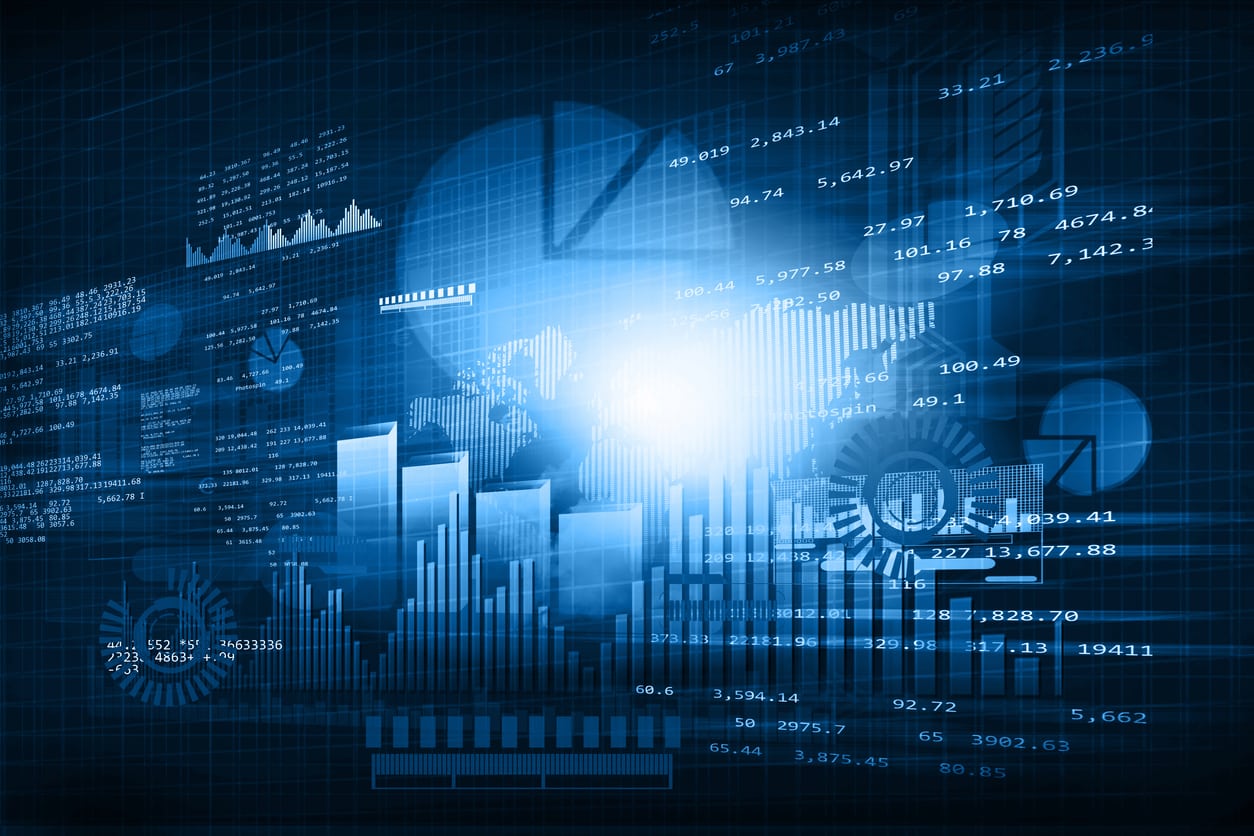- Difference between Business Analyst & Data Scientist
- Who is a Business Analyst
- Job Overview of Business Analyst
- Job Responsibilities in Business Analyst
- Job Requirements in Business Analyst
- Who is a Data Scientist
- Job Overview of Data Scientist
- Job Responsibilities in Business Analyst
- Job Requirements of Data Scientist
- Data Scientist vs Business Analyst Salary
- Difference between Business Analyst and Data Analyst
Business analysts are responsible for a range of tasks including understanding business requirements, laying out plans and developing actionable insights. Data scientists, on the other hand, are professionals responsible for analysing, preparing, formatting, and maintaining information. Business analysis combines integrative skills like analytics, business acumen and domain knowledge, whereas data science involves skills pertaining to computer science, mathematics and statistics.
| Business Analyst | Data Scientist |
| Business analysts look into client and business requirement | Data Scientists primarily model and analyse data |
| Business analysts communicate with clients to understand business perspectives | Data Scientists delve into business generated data to extract meaningful insights |
| Business analysts work only with structured data | Data analysts work with both structured and unstructured data |
| Business analysts need to have statistical skills, excellent interpersonal skills and problem solving techniques | Data scientists need to have mathematical skills, knowledge of machine learning algorithms, and statistics |
| Business analysts need to know SQL, R, Tableau, and Excel | Data Scientists need to know Python, R, SAS, Spark, Tensorflow, Hadoop etc |
| Business analysts use models like schema on load | Data scientists use models like schema on query |
Difference between Data Science and Business Analytics
Business analysts are professionals who look into the ever changing needs of any business and assist them in implementing those changes. They form a bridge of communication between various departments in a business organisation to execute any business plan.
Data scientists are responsible for developing algorithms and drawing data inferences. Since data science aims at unveiling complex data patterns by studying and understanding data sets, it is important that data scientists are well versed in multidisciplinary skill sets.
Both these roles are in fact, similar in a lot of ways, since both involve data gathering, inference accumulation and data modelling. The scope of data science and business analytics often overlap and the skill sets are not mutually exclusive. In any business environment, data scientists and business analysts work closely to understand and implement strategies. However, there are certain differences between these two branches that aspiring professionals must consider to understand which is best suited for them. Typically, data science can be taken up by early career professionals but business analytics is better suited for professionals with experience in business development, technology and project management.
If there’s one thing that has emerged as a force to be reckoned with in the world today – it’s data. Data is driving and shaping modern businesses exponentially. However, data in itself doesn’t hold much value for businesses unless it is analysed and categorised. Experts who dabble in data analytics can either be from a data science or a business analytics background. While both data scientists and business analysts are often seen working in close collaboration in a data driven environment, each of the roles involves different tasks and responsibilities.
Both data science and business analytics are popular career choices for young professionals today. If the myriad ways in which data work fascinates you then you can choose from either of the two career paths after considering your educational background, experience, skills and interests. To help you choose a career path, we have listed down the essentials and requirements of each of these roles.
Who is a Business Analyst
Let’s look into a sample business analyst job description to understand the various tasks and responsibilities involved in the role-
Job Overview of Business Analyst
We are looking for a business analyst for finance who will be responsible for leading projects, improving processes and supporting systems used by the Finance and Accounting departments as business requirements evolve. The ideal candidate will work closely with business stakeholders from teams within Finance and Accounting in all geographies to understand business challenges. Additionally he/she will document all business processes and requirements to meet those challenges. He/she will drive process improvement ideas with a focus on – scoping, coordinating, planning, executing testing, and executing launch activities, and provide ongoing support. He/she will also be responsible for triage and analysis of production support issues.
Job Responsibilities in Business Analyst
- Engage with our existing and prospective customers and help them to adopt products and solutions to meet their business requirements
- Ensure consistent growth in product awareness, adoption and usage by customers
- Showcase product and solution concepts via presentations, demos, user evangelization and effective documentation
- Lead discovery sessions with IT and business users to understand the client’s business objectives and system/application needs
- With an excellent understanding of product features and related technologies, design the solution that best meets the client’s requirements
- Proactively create documentary artifacts like business cases, usage scenarios, solution blueprints, FAQs, meeting notes… etc.
- Lead or work with other customer success teams to ensure successful completion of project milestones for production and the initial rollout phase of the project
- Communicate progress and expectations, escalate problems for awareness and resolution
- Lead client training sessions
- Support clients and play a key role in promoting solution adoption and usage
- Provide regular and adequate end user feedback to the product team

Job Requirements in Business Analyst
- A technical degree (Engineering, MCA) or business degree (MBA, BBA) from a reputed institute with a minimum of 4-5 years of experience in software or consulting industry
- Must be able to manage multiple projects utilizing strong planning and organizational skills
- Outstanding verbal, written and presentation skills to demonstrate solution concepts
- Strong interpersonal skills with ability to influence and build effective customer relationships
- Experience with general consulting skills that include team facilitation, business case development, strong business analysis skills, process mapping, and business process redesigning.
- Systems implementation skills: requirements/process analysis, conceptual and detailed design, configuration, testing, training, change management, and support
- Ability to set and manage customer expectations, and work independently on project assignments.
- Must be able to travel, providing on-site consulting work to clients when required and have the ability to work remotely from the office.
Good to Have:
- Enterprise-level business project experience with strong process analysis, design, delivery and documentation skills
- Experience working for leading technology consulting companies
- Knowledge of information security procedures and practices
- A certification in the knowledge areas related to information security, business – process management or IT infrastructure
Who is a Data Scientist
The following sample job description will help you understand the responsibilities handled by data scientists.
Job Overview of Data Scientist
We are looking for a highly skilled, experienced and passionate data-scientist who can come on-board and help create the next generation of data-powered tech product. The ideal candidate would be someone who has worked in a Data Science role before wherein he/she is comfortable working with unknowns, evaluating the data and the feasibility of applying scientific techniques to business problems and products, and have a track record of developing and deploying data-science models into live applications. Someone with a strong maths, stats, data-science background, comfortable handling data (structured+unstructured) as well as strong engineering know-how to implement/support such data products in Production environment.
Job Responsibilities of Data Scientist
- Demonstrate and drive deep technical expertise in solving real world retail business problems through the application of machine learning
- Collaborate with other team members both within and outside the data science team to create and deliver world class data science products
- Act as an SME on the floor and help build data science capabilities
- Preparing monthly sprint plans, prioritising requests from partner product teams
- Partnering with the product team to create key performance indicators and new methodologies for measurement
- Translating data into actionable insights for the stakeholders
- Automate reporting for weekly business metrics, identify areas of opportunity to automate and scale ad-hoc analyses
Job Requirements of Data Scientist
- 3+ years of experience in analytics, data science, machine learning or comparable role Bachelor’s degree in Computer Science, Data Science/Data Analytics, Maths/Statistics or related discipline
- Experience in building and deploying Machine Learning models in Production systems
- Strong analytical skills: ability to make sense out of a variety of data and its relation/applicability to the business problem or opportunity at hand
- Strong programming skills: comfortable with Python – pandas, numpy, scipy, matplotlib; Databases – SQL and noSQL
- Strong communication skills: ability to both formulate/understand the business problem at hand as well as ability to discuss with non data-science background stakeholders
- Comfortable dealing with ambiguity and competing objectives
Good to Have:
- Experience in Text Analytics, Natural Language Processing
- Advanced degree in Data Science/Data Analytics or Maths/Statistics
- Comfortable with data-visualisation tools and techniques
- Knowledge of AWS and Data Warehousing
- Passion for building data-products for Production systems – a strong desire to impact the product through data-science techniques
Data Scientist vs Business Analyst Salary
Data Scientist Salary
Data scientist salaries in India start from ₹500,000 per annum and go upto more than ₹ 2,000,000 per annum. Depending on the number of years of experience and skill set of the data science professional.
Freshers with 1 to 5 years of experience can expect to earn around ₹600,000-700,000 per annum.
Mid-level data scientists with 5 to 10 years of experience can expect to earn close to ₹1,100,000 per annum while senior data scientists with more than 10-12 years of experience can expect anything around ₹2,000,000 per annum.
Business Analyst Salary
The average salary of a business analyst in India is around ₹700,000 per annum. As with any other domain, business analysts’ salaries depend on the years of experience and the extent of the expertise.
An Entry level business analyst with 1 to 2 years experience can expect to earn anything around ₹ 600,000 per annum while a mid-level analyst can earn anything from ₹800,000-11,148,110 per annum. Senior business analysts with 10 or more years of experience can earn anything around ₹1,800,000-2,200,000 per annum.
With both data scientists and business analyst, the recruiting company also makes a difference. Companies like Accenture, Cognizant, Mu Sigma, JP Morgan seems to be the top companies to work with.
Difference between Business Analyst and Data Analyst
The difference between Business Analysts and Data Analysts is primarily based on how each of them deal with data. There are, in fact, quite a lot of similarities between these two roles, and depending on the company size, these roles can be interchangeable. However, there are certain data specific functions that are unique to each analyst role. Let’s look into those.
Business analysts deal with business implications of data and how to use them in any business environment to achieve the desired results. Data analysts, on the other hand, primarily analyse data to identify and reveal patterns, draw conclusions and insights from random data. In a way, one could say that the reports created by data analysts help businesses analysts in supporting their business decisions.
Even from a skillset point of view, there are differences between business analysts and data analysts. Data analysts need to know data science, data mining, data modelling, basic statistics, and maybe even big data analytics. Business analysts, on the other hand, need to know how to grow any business, apart from knowing the data skills.
| Business Analysts | Data Analysts |
| Business analysts need to know how to grow business | Data analysts need to know how to use data for business ends |
| Business analyst responsibilities include project management, stakeholder communication, quality testing, creating business cases and more | Data Analyst responsibilities include data entry, complex calculations, extrapolation and interpretation, troubleshooting, and more |
| Business Analysts generally have a background in business studies | Data analysts generally have a background in statistics and data science |
Data scientists and business analysts are expected to constantly upskill and keep abreast of the latest technologies and developments in their respective fields. Clearly, the decision cannot be an impulsive one. Refer to the curriculum of data science and business analytics for further details so that you are certain of the path you choose.









